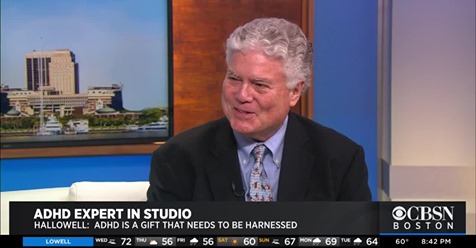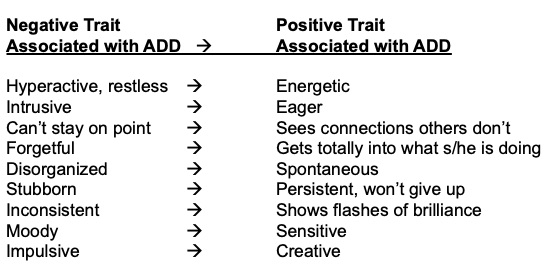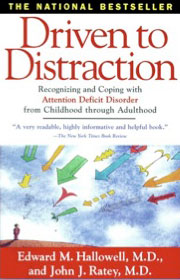Since October is ADHD Awareness Month, now is a good time to review some ADHD myths. We want you to have the FACTS.
MYTH: Having ADHD, ADD means you are stupid.
FACT: People with ADHD vary in their intelligence (whatever that elusive word means!) as much as the general population does. Many people with ADHD are extremely intelligent, especially in the areas of:
-
- creativity,
- original, out-of-the-box thinking
- remarkable persistence and resilience
- highly intuitive style
- resourcefulness, and
- emotional savvy.
Indeed, when I meet with someone who has ADHD, one of my top priorities is to locate their special talent. This is what I often call their special sauce, because, in my experience, almost everyone with ADHD has one.
Of course, when you first receive the diagnosis, you may not feel you have any special talents. You might also feel afraid. This diagnosis may sound ominous, containing the words deficit and disorder, but you need not be afraid. Since once the diagnosis is made, the next step is to find and develop your talents.
What To Do If You Find Yourself Asking, “But What Am I Good At?”
My answer is, “You never know. But whatever you do, don’t stop looking.” You can’t predict what your talent will be. Maybe it’s in being creative with investing online. Or maybe in working with motors or engines or in inspiring people. Whatever the talent, the goal of treatment is to bring your special talent to light and put it to work.
Learn How to Embrace Your ADHD
If you have ADHD and feel, “incompetent,” “stupid,” or “ashamed, learn how to reverse the negative thinking that leaves you feeling depleted and defeated. Read my approach outlined in this ADDitude article, “How to Stop Beating Yourself Up Already.”
Need help managing your ADHD?
At the Hallowell Centers, we follow Dr. Hallowell’s strength-based approach. It begins with a personal connection with you. We also connect with your family – if appropriate – and one of our clinicians. We believe in the power of positive connection above all else.
Upon that positive energy we seek out your, or your child’s, interests and strengths, while also identifying what weaknesses need shoring up. Together we turn what you may have thought was a “deficit disorder” into an advantage full of powers that can’t be bought or taught. We open up what you’ve known all along was a treasure chest, but you just didn’t know how to open. Learn more…
If you want to learn more about ADHD, click here.
Follow Dr. Hallowell on Facebook for more ADHD tips.


 The month of October is ADHD Awareness Month. It also marks the 25th anniversary of the publication of Driven to Distraction.
The month of October is ADHD Awareness Month. It also marks the 25th anniversary of the publication of Driven to Distraction.





